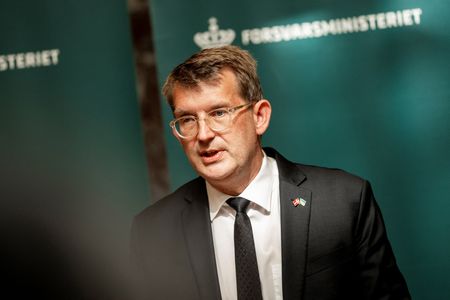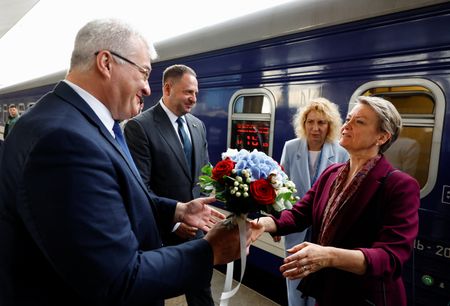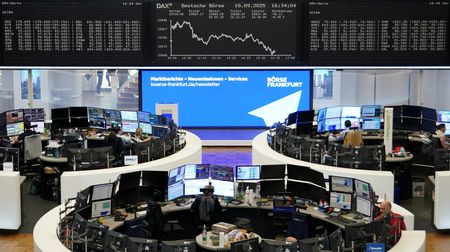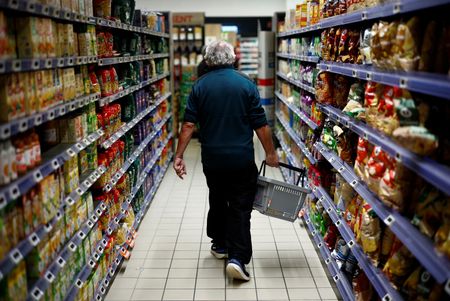By Angelo Amante and Giuseppe Fonte
ROME (Reuters) -Work to build a giant bridge connecting the Italian mainland to the island of Sicily is expected to begin over the summer, the infrastructure minister said on Monday, vowing to block any attempt by criminal groups to infiltrate the costly project.
The project has been talked about for decades as a way to help develop the impoverished south of Italy but appeared to have been killed off for good in 2013, when the company created to oversee its construction was closed down as part of a drive to curb state spending and rein in public debt.
However, Infrastructure Minister Matteo Salvini, the leader of the co-ruling League party, made it a priority and the government of Prime Minister Giorgia Meloni has set aside 13.5 billion euros ($15.2 billion) to build it.
“If we are particularly, I won’t say clever, but lucky and consistent, summer 2025 is the one for the works,” Salvini told a press conference.
The CEO of the bridge company, Pietro Ciucci, said the project still needed a final green light from a state committee overseeing strategic infrastructure and he hoped to submit the request by the end of June.
The construction, by a consortium led by Italy’s Webuild, would be some 3.6 km (2.2 miles) long, feature a central span measuring 3.3 km, and connect Sicily to the southern Calabria region.
It has become a highly divisive issue in Italy.
The bridge draws fierce criticism from those who question the wisdom of building it in an earthquake zone and those who say it would be a waste of money harmful to the landscape, amid fears that the Cosa Nostra and ‘Ndrangheta gangs based in the area could infiltrate the works to reap huge profits.
But the project also has strong support from those who believe a fast rail and road connection as an alternative to the current ferry crossing of the Strait of Messina would boost southern Italy.
Salvini rebuffed security concerns, saying the bridge would be able to withstand the forces of nature, and maintained that refusing to implement projects in mafia-tainted areas would amount to a “state surrender” to the criminals.
Interior Minister Matteo Piantedosi said a centralised anti-mafia body would make checks on companies involved, with a focus on those sectors particularly exposed to mob infiltration, such as the disposal of waste materials. ($1 = 0.8883 euros)
(Reporting by Angelo Amante and Giuseppe FonteEditing by Keith Weir)










